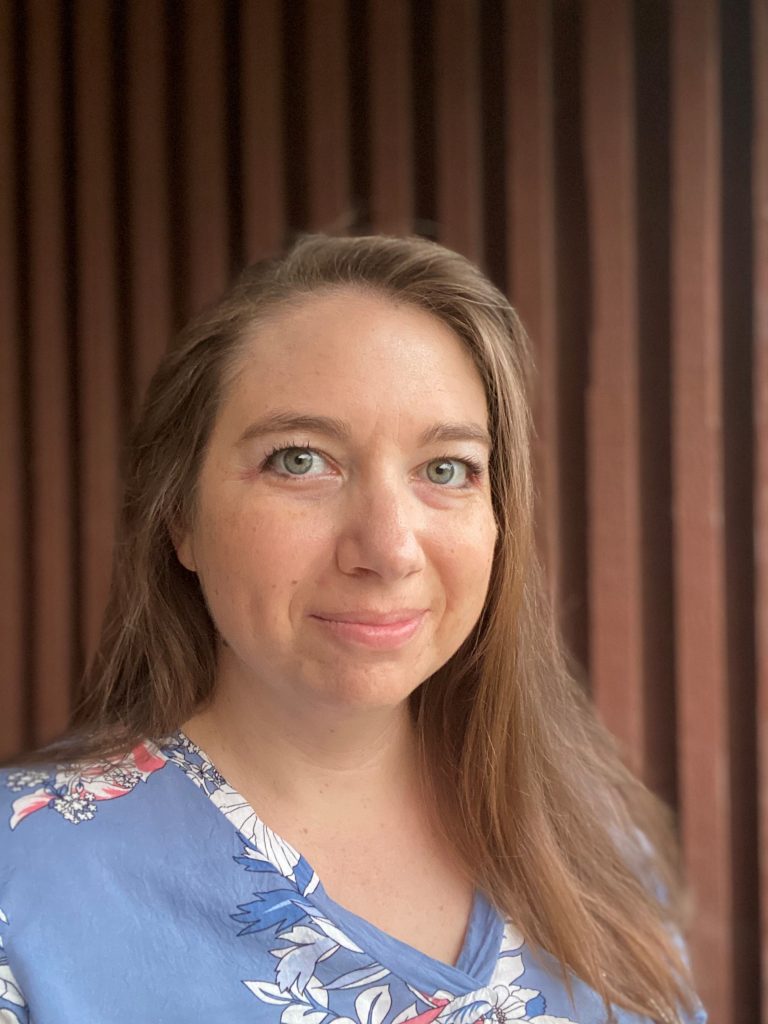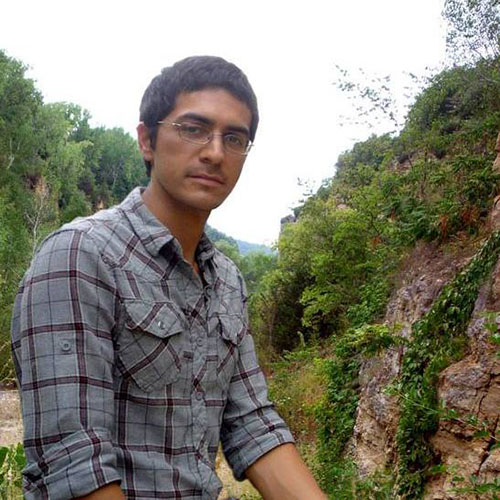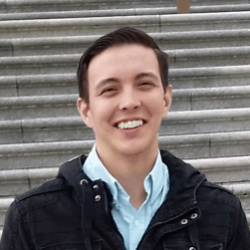National Association for the Practice of Anthropology
MEET NAPA’s 2021 VOLUNTEER OF THE YEAR: Amanda Woomer
- Byadmin
- On
NAPA conducted an online interview with Amanda Woomer, NAPA’s 2021 Volunteer of the Year Awardee for the November 2021 issue of NAPA Notes:
How did you get your start in anthropology?
After completing my undergraduate degree in International Affairs and French, I read the book The Spirit Catches You and You Fall Down by Anne Fadiman and was struck by the impact of culture on health outcomes. The lack of cultural competency, not just in the medical field, but in other areas such as environmental conservation felt like such an opportunity to engage. I was lucky enough to have a job at the time that would pay for my tuition in any degree program, so I found one that I felt would help me prepare to engage in these issues.
What drew you to the field?
I have always been really interested in what life is like for people different from me.
In high school, a social studies teacher shared a book with us called Material World:
A Global Family Portrait. It shows families around the world standing in front of their homes with all their belongings. In one picture, you caught a glimpse into people’s lives, what they cared about, what they valued. It was so compelling and made me want to know more. After completing an undergraduate degree in international affairs, which was more focused on political and political science, I knew I wanted to focus more on people and their culture.
Where did you go to school?
I completed my master’s degree in anthropology at Georgia State University. As mentioned above, I completed my undergraduate degree in International Affairs and French at the Georgia Institute of Technology before that. After my master’s, I completed a PhD in International Conflict Management at Kennesaw State University.
What have you been doing since graduation?
My career since receiving my master’s has been focused on working with nonprofit development, conservation, and peacebuilding organizations to craft better strategies, programming, and monitoring and evaluation systems. The skills and
approaches I learned during my studies in anthropology help me to support people in centering the needs of people and communities while grounding programming in the sociocultural context in which it takes place. This work emerged from my observations of organizations that, while driven by good intentions, lacked the cultural competency and contextual understanding necessary to be effective and sustainable while also avoiding (unintended) negative consequences. I found that one way to address this was through monitoring and evaluation (M&E), which often includes a focus on good program design, accountability, and learning. Today, I work for Habitat for Humanity International and consult regularly.
How have you seen your career moving along?
Lately I’ve been involved in some very cool projects outside of my work with Habitat. These include current work with the Environmental Law Institute (ELI) on a monitoring and evaluation toolkit for environmental peacebuilding practitioners as well as a project with Columbia’s Earth Institute on how environmental protected areas affect conflict and wellbeing of the communities around them. In both projects, I bring the mindset of an anthropologist and the skills of a qualitative researcher to an interdisciplinary team, which I find really increases the quality of our work. When you bring different perspectives to the table, the end product is often more realistic, holistic, and effective.
What personal and career passions does anthropology enable you to pursue?
Anthropology gives you a unique way of looking at the world that is useful in any career path someone might choose. I find that, professionally, I can ask good questions that guide teams toward better programming because I am able to think about things from the standpoint of society and culture rather than just technical or policy issues. Personally, anthropology and my subsequent studies in conflict management have enabled me to engage in difficult conversations in a way that gives people space to share while creating the psychological safety needed for them to also hear. The culture in America today is often so divisive that people often aren’t willing to even have a conversation, which makes accomplishing what I know are shared goals all but impossible sometimes. I find that my curiosity about other people, the way they live, and why they think like they do allows me to be more empathetic and engage more productively by recognizing where someone is coming from and our shared values.
Who inspires you and how does it influence your research and professional inquiry?
I was recently inspired by the work of Dr. Paige West, a key voice in environmental anthropology. While preparing for a conference presentation, I rediscovered West’s 2016 article “An Anthropology for ‘the Assemblage of the Now.’” West writes, “… how many of us have been in situations where we have heard our colleagues put down someone as ‘not very smart’ or, the ever-dreaded, ‘not very theoretical’ because their work is easy or a pleasure to read?” (p. 442). I have received similar critiques. West makes the point that anthropology should be more accessible if it is to be used and useful. In my fields of development, conservation, and peacebuilding, this is even more true.
What advice would you give to a student starting their career in anthropology?
Engage with as many people as possible. My interdisciplinary work has exposed me to new ideas and ways of thinking while also helping me to hone my own work and figure out my niche. In some cases, people may not understand what an anthropologist does or can bring to the table. By engaging with diverse people doing interesting work, you not only learn yourself, but you help other people better understand the benefits that anthropology can bring to any line of work or research.



